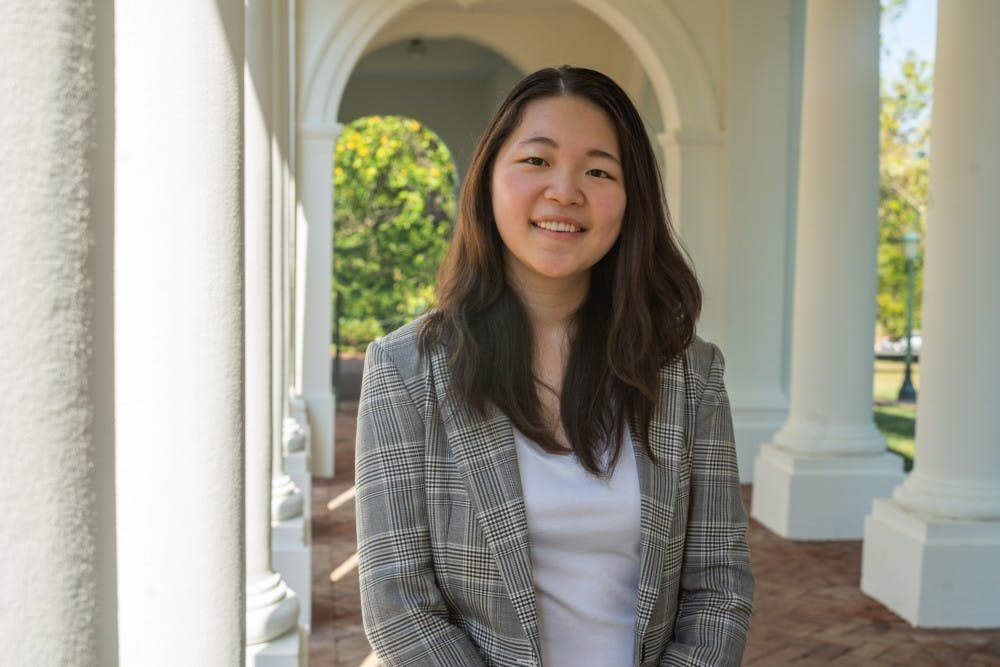中文版请点击此处
At this point, it’s hard not to be numbed to the recurring headlines detailing death and despair. Whether it’s COVID-19 statistics on rising cases and deaths or the tragic loss of life in an unforeseen incident, reading the news has shifted from an mundane part of one’s routine to an instant horror-inducing necessity. The Atlanta shooting — in which eight people lost their lives at three separate massage parlors — is no exception.
One fact of the violent tragedy that has garnered national attention is the fact that the shooter targeted Asian women, with six victims being women of Asian descent. The mass shooting has sparked outrage and grief in communities across the country. As Americans demand change and take time to reflect, it is both necessary and imperative that we also consider the long and rarely discussed history of discrimination against Asian Americans — especially in the current pandemic.
I, for one, am tired. I am tired of reading the news and facing yet another reminder that our country still struggles to wipe out the stain of hatred and prejudice. This isn’t even the only or most recent mass shooting in a week. After a while, it becomes difficult to articulate the pain we as Americans have endured for many years — the pain of racism, brutality and misplaced anger. My heart breaks for the families of the victims, but also for all marginalized and vulnerable communities that have faced the full brunt of discrimination and injustice for centuries.
What makes this incident all the more frustrating is the tepid response from local law enforcement. When I heard Captain Jay Baker — representing the sheriff’s department in Cherokee County, Ga. — excuse the shooter’s actions by claiming he’d “had a bad day,” I couldn’t believe my ears. Not even days later, it was discovered that the captain himself had posted on social media promoting racist rhetoric against Asians. This is just one example in a long series of statements calling into question the racial component of this mass shooting. Several commentators in the media have clung to the shooter’s claim that he targeted the massage parlors because of his sex addiction, rather than any racial bias.
The fact that so many people in the United States are still willing to sweep claims of racism and racially motivated behavior under the rug is unacceptable. I myself have felt disbelief and anger simmering beneath my skin with every new rationalization I see in the news, festering there like a disease. How anyone can try to separate the bigoted hate from the crime is beyond me. In a society where Asian American women have been sexualized, objectified and fetishized to an obscene extent, it is horrifying to me that some can still wave away the interplay of race, gender and prejudice. Anti-Asian racism has been present in U.S. history in the form of exploitation and public degradation for well over a century, though it is rarely brought up in the public arena. That is not to mention the stereotypes — ranging from the model minority myth to the depictions as the perpetual foreigner — and outright crimes against Asians that have only worsened since the beginning of the COVID-19 pandemic.
As a Korean-American woman, I have faced discrimination throughout my lifetime, too. I was born and raised in Northern Virginia, surrounded by a large Asian American community. It may seem as though anti-Asian racism was a rarity in my childhood — and I have certainly not experienced levels of racism comparable to those who do not have the same sense of racial community in their areas that I do. But that does not mean I was able to entirely avoid judgments and assumptions based solely on my race and gender. I have been yelled at on the street, called ethnic slurs by strangers and had racial jokes made at my expense. One time while shopping at the mall with three friends, I was approached by a woman who insisted we keep our voices down.
“Do all Beijing people act like this?” she asked me angrily. Even years later, I still remember the way those words made me feel — like I had been reduced to nothing. In all honesty, I was more shocked than angered by her outburst. I was too stunned to even muster a reply. I still regret not having said anything to her that day.
In East Asian cultures like my own, we are told to keep our heads down. Respect for hierarchy and inner strength — enduring in silence rather than causing a fuss — is a huge part of our traditions, specifically the concept of “face” and attempts to preserve dignity by not raising one’s voice. That may very well be a key contributor as to why anti-Asian racism tends to hide in the shadows of public discourse. But in a time when the total number of hate crimes has decreased, yet anti-Asian hate crimes — especially those committed against Asian women — are on the rise, we have to speak up. We must lift the veil that obscures the patterns of systemic racism that have been perpetuated against those of Asian descent for generations.
Anti-Asian racism is nothing new, but it has certainly become more visible during the pandemic. When even the former U.S. president was calling COVID-19 the “Chinese Virus” and “Kung Flu,” it’s clear that the issue has taken a spotlight in media coverage as calls for change have been provided a platform. It’s up to us to ensure that this is not temporary. Even after the mass shooting is no longer a fresh wound, even after the pandemic has come and gone — we have to keep pushing against all forms of racism. We cannot let anti-Asian racism be forgotten or buried again.







